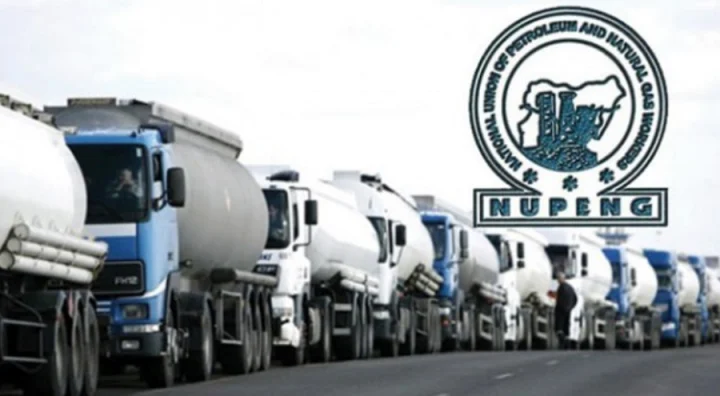The Federal Government has rescheduled its scheduled negotiation meeting with the Nigeria Union of Petroleum and Natural Gas Workers (NUPENG) following continued tensions over industrial action threats. The meeting, originally slated to hold earlier in the week, was aimed at resolving outstanding grievances raised by the union concerning welfare, working conditions, and compliance with labour agreements. However, government officials confirmed that it would now take place at a later date after both sides agreed on the need for more preparatory consultations.
The rescheduling comes at a sensitive time, as NUPENG members have expressed growing frustration over unresolved issues affecting their sector. The union had earlier warned of possible strike action should the government fail to address its concerns, which include disputes over salary arrears, poor conditions of service for tanker drivers, and lingering safety concerns across the oil and gas industry. A full strike by NUPENG could have wide-ranging effects on petroleum supply and distribution, with potential disruptions to fuel availability across the country.

According to government representatives, the postponement was necessary to allow all relevant stakeholders adequate time to prepare and to ensure that the meeting produces lasting resolutions. Officials explained that the Ministry of Labour and Employment was coordinating with other key agencies in the petroleum sector to harmonise positions ahead of the new meeting date. They stressed that the government remained committed to dialogue and would continue to engage NUPENG in good faith.
NUPENG leaders, while acknowledging the postponement, expressed disappointment at the delay, insisting that the government had ample time to address their concerns. They argued that repeated rescheduling of meetings only worsened the frustration of their members and undermined trust in the negotiation process. The union, however, said it would still attend the rescheduled meeting once a new date is confirmed, provided that government comes with concrete proposals rather than mere assurances.
Industry observers have warned that continued tension between the government and NUPENG could heighten uncertainty in the downstream petroleum sector. Previous strikes by the union have caused fuel queues, disrupted transportation, and contributed to inflationary pressures. With the current economic climate already marked by rising costs and fragile supply chains, a major disruption to fuel distribution could compound the challenges facing households and businesses.
The Federal Government is therefore under pressure to act swiftly. Labour experts note that the key to averting escalation lies in addressing both immediate grievances and broader structural issues affecting petroleum workers. These include the enforcement of safety standards for tanker drivers, implementation of existing collective agreements, and tackling the problem of contract employment in the industry. For many NUPENG members, the perception that government and employers often delay or avoid fulfilling obligations has been a recurring source of discontent.
The union has also raised concerns about the security of its members, citing frequent attacks on tanker drivers and incidents of vandalism on highways. NUPENG insists that improving welfare and safety conditions is non-negotiable, arguing that petroleum workers are critical to sustaining Nigeria’s economy and should not be left vulnerable. Government officials have acknowledged these concerns and have pledged to work with security agencies and industry stakeholders to address them, but progress has been slower than the union would like.
Economic analysts say the situation highlights the delicate balance between labour relations and energy supply in Nigeria. Petroleum distribution remains the backbone of transportation and logistics across the country, and disruptions in the sector quickly ripple through the economy. While government’s preference for dialogue is commendable, they argue, it must be backed with decisive actions that rebuild trust with organised labour.
Meanwhile, public attention is fixed on whether the rescheduled meeting will succeed in producing concrete agreements. Citizens, already facing high living costs, are anxious to avoid the hardship that often accompanies fuel scarcity. For many Nigerians, the hope is that government and NUPENG will put aside differences and prioritise national interest by finding common ground.
The Federal Government has reiterated that strike actions should remain the last resort, stressing that dialogue is the only sustainable path to resolving industrial disputes. Officials have urged NUPENG to exercise patience while the government finalises plans to meet its demands. The Ministry of Labour has assured that the forthcoming meeting will not only address outstanding issues but also lay the foundation for a more collaborative relationship between the government and the union.
NUPENG, on its part, has called on the government to treat the matter with urgency and sincerity. The union leadership stated that its members are ready to work but cannot continue under unfavourable conditions that compromise their safety and wellbeing. They cautioned that unless there is clear evidence of commitment from the government, threats of industrial action cannot be completely ruled out.
As the new meeting date approaches, all eyes will remain on Abuja, where negotiations are expected to resume. The outcome will be critical in determining whether Nigeria avoids another round of fuel supply disruptions. For now, both sides have signalled their willingness to continue talking, but the real test lies in whether dialogue will translate into tangible solutions that satisfy workers while ensuring uninterrupted energy distribution.
Support InfoStride News' Credible Journalism: Only credible journalism can guarantee a fair, accountable and transparent society, including democracy and government. It involves a lot of efforts and money. We need your support. Click here to Donate
